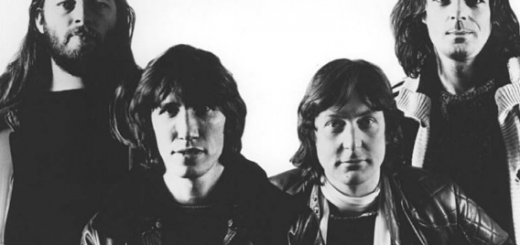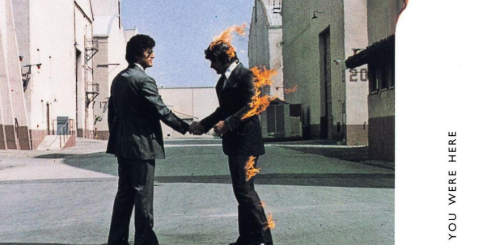Summer ’68 by Pink Floyd Lyrics Meaning – A Deciphering of Passion, Regret, and the Transient ’60s
Lyrics
Perhaps you’d care to state exactly how you feel
We said goodbye before we said hello
I hardly even like you, I shouldn’t care at all
We met just six hours ago, the music was too loud
From your bed I gained a day and lost a bloody year
And I would like to know
How do you feel, how do you feel?
How do you feel, how do you feel?
Not a single word was said, the night still hid our fears
Occasionally you showed a smile but what was the need
I felt the cold far too soon, in a room of 95
My friends are lying in the sun, I wish that I was there
Tomorrow brings another town and another girl like you
Have you time before you leave to greet another man
Just you let me know
How do you feel, how do you feel?
How do you feel, how do you feel?
Goodbye to you
Charlotte Pringle’s due
I’ve had enough for one day
Embedded within the musical tapestry of Pink Floyd’s enigmatic album ‘Atom Heart Mother’ lies ‘Summer ’68’, a track that veers off the beaten path of their signature psychedelic sound. Composed and sung by the band’s keyboardist, Rick Wright, this song encapsulates an era of transient love and fleeting experiences while wrapped in punchy brass arrangements and candid lyricism.
Underneath the surface of its upbeat tempo, ‘Summer ’68’ tells a tale of brief encounters and the introspection that often follows impulsive passion. It’s a musical time capsule that evokes the essence of a time when free love wasn’t just an ideology, but a lifestyle that came with its own set of emotional complexities.
A Swinging ’60s Story: Love on Fast-Forward
At its core, ‘Summer ’68’ recounts a fleeting sexual encounter, synonymous with the era’s swing towards liberal attitudes. The song’s opening lines immediately set the scene for a brief connection, destined to leave as quickly as it came. Pink Floyd uncovers the post-coital discourse often disregarded in the romantic tales of the time.
While the swinging ’60s are often idolized for their sexual revolution, the protagonist’s experience reflects a personal struggle with the era’s norms. The morning after rhetoric challenges the listener to consider the emotional cost of temporary love affairs, revealing the dichotomy between societal change and individual sentiment.
The Emotional Pendulum: From Euphoria to Regret
Wright’s narrative swings like a pendulum between the highs of euphoria and the lows of regret. This contrast is particularly poignant when juxtaposing the warmth of the companionship against the chilling realization of its brevity. ‘Summer ’68’ doesn’t just speak of physical closeness; it delves into the psychological aftermath of a generation breaking free from convention.
The emotional transparency in the song is a breakthrough from the heady abstractness often found in the band’s other works. It showcases Wright’s songwriting prowess and strengthens the album’s exploration of human sentiments amidst a backdrop of progressive rock innovation.
The Unsung Hero Behind the Keys: Wright’s Compositional Genius
Although often overshadowed by the more prominent voices of Waters and Gilmour, Rick Wright’s contributions to the band are profound. ‘Summer ’68’ stands as a testament to his influence on Pink Floyd’s early sound, showcasing his ability to weave classical influences with rock sensibilities.
The song’s orchestral flourishes and sophisticated chord progressions provide a lush, vibrant soundscape that belies the melancholy of its lyrics. It is a shining example of Wright’s compositional genius, offering a rich and harmonic complexity to the band’s already diverse musical catalog.
Exploring the Hidden Meaning: A Reflection on Time and Transformation
One could argue that ‘Summer ’68’ is more than just a song about a short-lived romantic encounter; it’s a reflection on the nature of time and transformation. Wright questions not only how one feels in a single moment but also how those feelings echo into the future — ‘I’ve gained a day and lost a bloody year.’
This temporal paradox brings forth a meditation on how we quantify experience and memory. The song acts as a time capsule within a time capsule, immortalizing a summer’s day in 1968 while simultaneously prompting the listener to ponder the fleeting nature of their own experiences.
Memorable Lines and Lingering Echoes: The Legacy of ‘Summer ’68’
The refrain ‘How do you feel?’ resonates as both a genuine inquiry and an existential plea. These words, simple on the surface, scratch at the layers of human connection — probing at the emotions that often go unexpressed. The repetition amplifies the protagonist’s search for meaning in the transient.
As ‘Summer ’68’ fades out with the departure of Charlotte Pringle and the resolution to move on to another day, another town, another encounter, the song’s legacy endures. It continues to stir the thoughts of listeners, bridging the gap between the personal and the universal, and leaving an indelible mark on the Pink Floyd odyssey.








